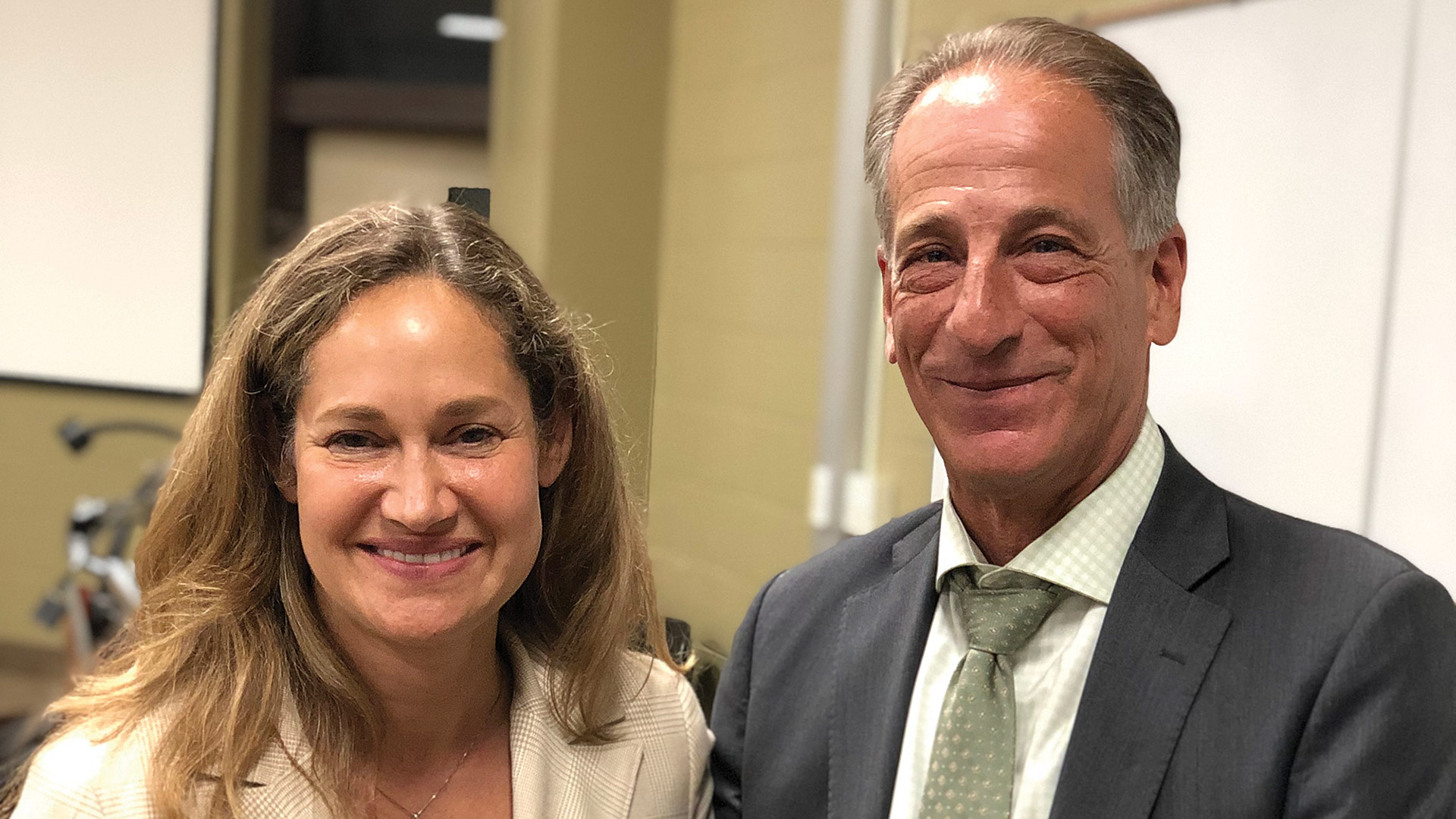Business West.com report
As a law professor, Julie Steiner saw the thorny issues raised by cannabis legalization in Massachusetts — and the way it conflicted with federal law — very early in the process and turned it into a passion of sorts, not only educating students at Western New England University School of Law, but bringing other educational resources to the region and becoming a go-to resource on the topic of cannabis law. Yet, it’s not just legal nuts and bolts she’s interested in, but the real people impacted by a drug-regulation history in the U.S. that’s problematic at best — and still evolving.
Julie Steiner has been interested in the connections — and, often, the contradictions — between the fields of law and cannabis for a long time.
And when momentum was building in Massachusetts to legalize adult-use cannabis, just a few years after medical marijuana was given the green light, she really started thinking about the implications.
“Lawyers raise their hand and swear to uphold the law of the United States,” said Steiner, professor of Law at Western New England University (WNE) School of Law. “But cannabis is federally illegal, even though it’s technically legal in Massachusetts. How are lawyers to navigate this whole murky system?”
Based on informal conversations with her colleagues, plenty of law professionals were fascinated by this topic — and unsure how the practice of law could deal with the emerging business of cannabis.
“Cannabis is federally illegal, even though it’s technically legal in Massachusetts. How are lawyers to navigate this whole murky system?”
“It was getting off the ground in Colorado and Washington recreationally, so we had those two states to look at,” Steiner told BusinessWest. “But there was a dearth of scholarship. It was such an interesting time, really. Back then, support for legalization wasn’t as strong as it is now. In law, there was concern about clients and lawyers being prosecuted under RICO statutes.
“I called it the Wild West,” she went on. “The state bar association in Colorado had taken the stance that you can advise on the law, but since it’s federally illegal, if you actually started advising clients through the process of licensure, you risked bar sanction. That ultimately went away because courts reversed the bar stance on that, but it was a risky time. It was really, really interesting.”
That’s one reason why she applauds her university and its administration for being forward-thinking in establishing curriculum around this rapidly evolving topic, specifically a course called Cannabis Law and Policy. She proposed the course in 2015 and, after a year of legwork, and study, started teaching it in 2016, just a couple months before voters made adult-use cannabis legal in Massachusetts — but long before businesses actually started to open.
“Our primary mission was, and still is, lawyer competency,” Steiner explained. “I try to touch upon every facet that I can of the industry, teaching aspiring lawyers but also the practicing bar about how to counsel clients.
“I call the most risky the ‘plant touchers’ — cultivators, manufacturers, and retailers. They’re the most highly regulated and most vulnerable to prosecution if they do anything wrong,” she went on. “That requires a lot of competence, legal advice, knowledge about regulatory regimes, and ability to keep abreast of the ever-changing landscape.”

Julie Steiner welcomes Cannabis Control Commissioner Steven Hoffman as a guest lecturer in one of her Cannabis Law and Policy classes.
And changing it is, she emphasized. “I find I can’t rely on anything I said last month without updating it.”
Beyond the plant touchers, plenty of other types of businesses have been involved in the world of cannabis, from lightbulb suppliers for growers to drivers who transport money; from property landlords to IT and security firms. And the list goes on.
Sensing that this new industry would need legal guidance, Steiner not only created the course, but was involved in bringing Cannabis Control Commission (CCC) regulatory public hearings to the law school starting in 2018. The following year, the city of Springfield retained her to serve as a consultant to develop a process to solicit and select marijuana shops.
And she’s become a sought-after resource on cannabis law, having been been interviewed by regional and national media; published scholarly articles in many legal journals; advised educational institutions on the topic of drug policy; and lectured on the topic in WNE’s Mini Law School and Road Show programs.
It’s a field, she notes, that has already crept into numerous law niches, from banking and finance to taxation; from real estate to employment law; from intellectual-property law to prosecution and defense, just to name a few. “Cannabis law touches on all of it. It’s a serious and evolving subject field in the law.”
Read the full profile at
WNE’s Julie Steiner Has Led the Way in Cannabis-law Education

















